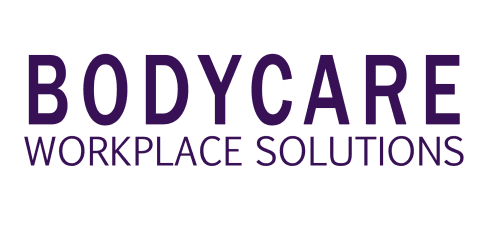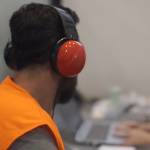Preventing Cold and Flu in the Workplace
The cold and flu season is something that all employers dread. But if managed properly, it doesn’t have to be a disaster for your business. Here we take a look at some of the steps you can put in to place to minimise the risks of your team suffering this winter.
Maintain a clean workplace
Throughout the colder months your office should be cleaned thoroughly and if possible more frequently, to reduce bacteria build up. Special attention should be paid to cleaning shared surfaces such as communal workstations and desks as well as keyboards, door handles and phones, as these high traffic areas are often the breeding grounds for bacteria and increase the likelihood of the common cold spreading across the workforce.
Research shows that if a virus is present on shared surfaces in the office, such as door handles and desks, it can spread to between 40% to 60% of the workforce in just two to four hours. This can be reduced by 80% to 99% simply by wiping down shared surfaces regularly with disinfectant wipes, and ensuring all workers are practicing good hygiene.
Encourage good hygiene practices
It’s essential that all workers are aware of the correct hygiene procedures to minimise the risks of the dreaded winter flu spreading. Regular hand washing is essential, and hand sanitiser should also be used wherever possible.
If you have a runny nose or need to sneeze, you should always use a clean tissue, and bin it straight away. You should then wash and sanitise your hands immediately afterwards. If you don’t have a tissue, you should sneeze into your sleeve rather than your hands, which again need to be washed and sanitised.
There are a number of steps you can put in place to ensure better hygiene in the workplace. Putting up signs reminding staff of the correct procedures can be helpful. In addition, make sure your office is stocked with supplies of tissues, hand sanitiser and disinfectant wipes which are easily accessible to all workers. You can also provide pedal bins that don’t need to be touched by hand.
Promote cold and flu vaccinations at work
Providing employees with flu vaccination is a great way to ensure your team are protected and safeguarded against the flu this winter. Providing vaccination is also a great way to educate your team about the signs and symptoms that are commonly associated with the flu while also providing them with a variety of preventative measure they can put into place.
Whilst there may be some new virus strains that vaccinations do not cover, they do offer protection against the most common strains, reducing the chances of your employees contracting cold and flu viruses and having to miss work.
Be flexible and understanding
It’s likely that you will have to make some adjustments in the workplace during the cold and flu season. While these may be inconvenient, they are sensible precautions to take.
It’s advisable to try and reduce the number of people coming into contact with each other at any one time if its known that someone is suffering from the flu. If possible encourage employees to work from home if they are beginning to show signs of sickness, this will improve their recovery times and prevent the illness from spreading.
Most importantly, make it clear that if a worker is sick, they should take time off without worrying about losing their job. It’s far more important to prevent the spread of illness throughout the workforce. Anyone who has a cold or flu should not return to work until at least 24 hours after their temperature has returned to normal without medication, and all their major symptoms have subsided. Otherwise, they could still be contagious.
Schedule workplace flu vaccinations today
Managing the cold and flu season isn’t easy, but it’s possible by taking the right precautions and encouraging best practices. If you would like more information, please get in touch and we’ll be happy to advise. We can design a workplace flu program to protect your business or organisation in Australia.

